SUMMARY
This is AI generated summarization, which may have errors. For context, always refer to the full article.

This compilation was migrated from our archives
Visit the archived version to read the full article.
After more than two years and an estimated 23,518 deaths under investigation, Rappler tells the story of Rodrigo Duterte’s drug war from the eyes of the killers.
In early 2017, the Philippine National Police (PNP) arrested members of a vigilante gang suspected of preying on drug suspects and criminals in Tondo, Manila. The group was a local chapter of the Confederate Sentinels Group (CSG), a national volunteer organization that the police had officially accredited as force multipliers.
Rappler’s 6-month investigation shows strong indications that the police were outsourcing extrajudicial killings to the same vigilante gang they accused of murder. According to individuals with knowledge of CSG Tondo Chapter 2’s activities, officials of the PNP coordinated with vigilantes, took credit for murders, and on occasion paid for assassinations in the name of the war against drugs.
This sixth of seven stories, published in installments, includes on-the-record testimony from community members as well as two of the CSG’s self-confessed vigilantes. At their request, Rappler has changed or withheld their names for their own safety. Angel and Simon are not their real names.
Village 105 is Duterte country, the sprawling slum where Rodrigo Duterte won when he ran for president in 2016. His more ardent supporters included the village chairperson Leny Reyes herself, now on her second elected term after her husband passed her the baton on hitting the nine-year maximum.
The village is where shanties built from plywood crowd each other inside the hollow shells of old tenements. Teenagers crouch sniffing solvent inside burnt-out buildings. Outside, on the sodden passages that pass for streets, piles of leftovers scavenged from the back alleys of fast food joints are packaged for resale at about P50 or a dollar a bag.
105 is where it is possible for a 22-year-old to knife five people without once getting caught, and where a man could watch a murder one evening and get shot in his living room the next. It is also where police claimed a vigilante group had run havoc in the first few months of the war on drugs, killing at least 4, including a 16-year-old boy named Charlie Saladaga.
Tondo, said Reyes, is no more violent than other places in the country. Drugs can be found anywhere, and Village 105 was no different. There may be runners and dealers living in the shanties, but she assured the public that they counsel the suspects who are known.
“As our President said, ‘If you want to change, go home to your provinces,’” said Reyes.
For Reyes, 105 became a more peaceful place in the two years since a strongman from the south took his seat in Malacañang Palace. Reyes said she could count in one hand the number of people murdered in the last two years.
“It’s why we thank the President,” she said. “We see how things got better here. He did a lot for us. Not that I think he can hear me, but big thanks to him. First to God, second to him.”
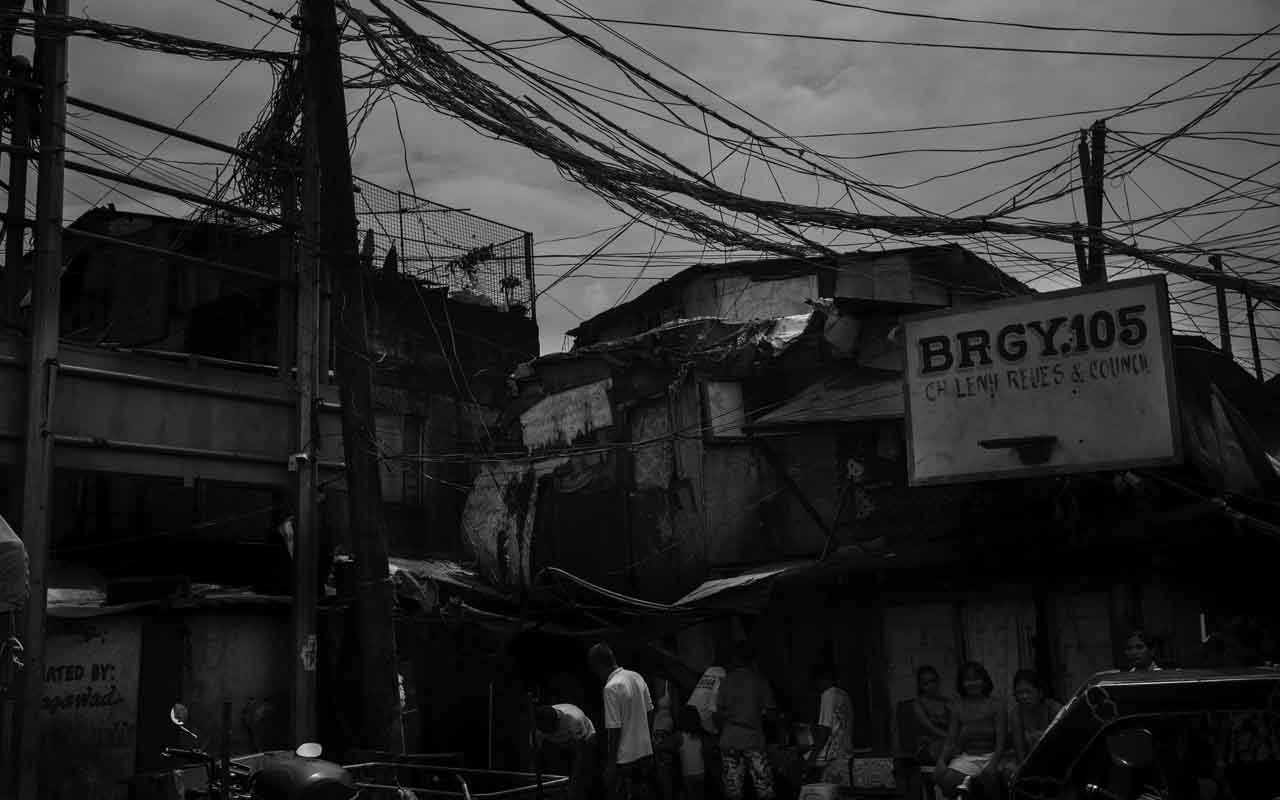
Allegations that an active vigilante team had been operating unchecked under Reyes’ watch aroused little concern from the chairperson.
“What they’re saying, about the killers, yes there were killers,” Reyes told Rappler. “But there are snakes everywhere, aren’t there? Even in Makati or other places they’re there. That’s why I said, when night comes, people should be inside their homes. If you have nothing to do, don’t wander around. That’s what I say. God made the night for sleep, the day to work, right? So things like that wouldn’t happen if people just stayed quiet in their own homes.”
A variety of Rappler’s sources spoke of what they called close ties between the local administration of Village 105 and the allegedly violent killing arm of CSG Tondo Chapter 2, led by Ricardo Villamonte, alias Commander Maning.
There were residents who said Reyes was in constant contact with members at the height of the killings. Some believed she was involved in the CSG’s founding. Others were more careful: “The funny thing is that wherever the chairman is, the CSG are too.”
“Commander Maning was her bodyguard,” said Simon, a resident who described himself as a CSG vigilante when he spoke to Rappler. (Commander Maning has denied employment with the chairperson.)
Angel, another self-confessed CSG vigilante, said that “Reyes had a connection with the CSG.”
“The CSG worked with ‘Madame,’ the village captain,” said a former hitman, who was once part of a gang targeted by CSG Tondo Chapter 2.
Another man, working in the village hall at the time CSG Tondo Chapter 2 was actively recruiting, said it was Reyes who tried to bring him into the group and gave him the uniform shirt. (Reyes refused to answer further questions when approached a second time by Rappler.)
Reyes denied employing members of CSG Tondo Chapter 2, or any direct association with the group. She claimed her only official contact was a courtesy call in her office – “They said, ‘Chairman, we are the CSG, and our goal is peace’” – as well as a meeting at the Police Community Precinct at Smokey Mountain. The meeting was at the invitation of a police officer whose name she could not recall.
Sources told Rappler it was the police who actively recruited members of CSG Tondo Chapter 2.
Reyes said she was introduced to Commander Maning. She said she saw the CSG patrolling with the police. She said she had been told by the precinct that the CSG meant to build an outpost along Road 10. She said she had no knowledge of the CSG’s activities, as the territory she covered was so large that she was “unable to monitor every home and building.”
She said she knows nothing of their events, including CSG-sponsored welfare missions. (Photos from August 2016, however, showed Reyes present at a CSG Tondo medical mission, posing beside a uniformed Captain Jomar Cardozo of PCP Smokey Mountain, with Commander Maning standing close by.)
While Reyes was vague about her relationship with Commander Maning and the rest of CSG Tondo Chapter 2, she was clear where she thought blame for the death of Charlie Saladaga lay.
His death, said Reyes, was his mother’s own fault.
“Let me tell you about that boy,” Reyes began.
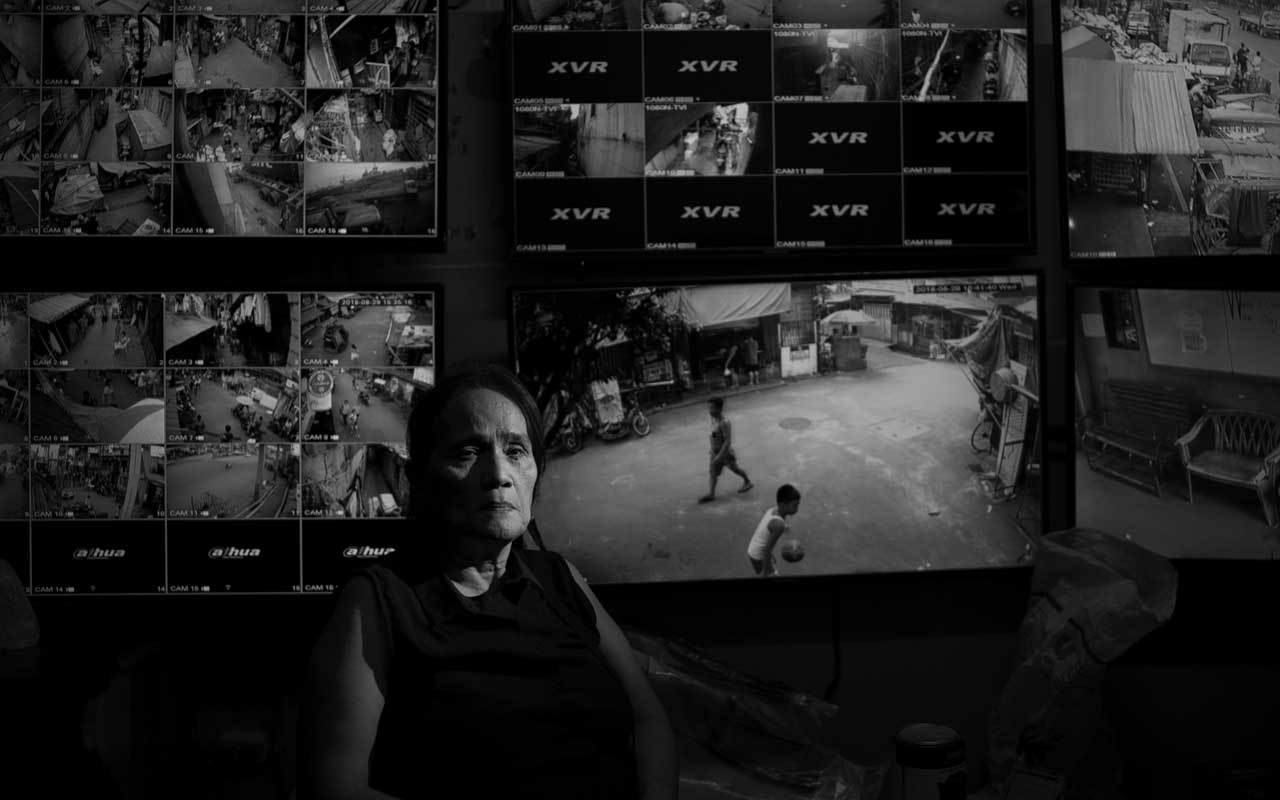
In December 2016, by Reyes’ reckoning, the 16-year-old Charlie and at least two of his friends broke into the home of a local village official. According to Reyes, the young men stole computers and “everything they could get their hands on.”
The teenagers were caught, but Charlie managed to escape.
Reyes has four sons, all of them professionals, all college graduates, each one employed, one of them working in Stanford Hospital in the United States, another a nurse in Norway. It all depends on the parents. Living in Tondo doesn’t mean immersion in drugs and violence. “Sometimes it’s the mother, she’s negligent,” she said. “You need to look after your kids.”
Had Cristina Saladaga been a dutiful mother, said Reyes, Charlie would be alive.
“You’re the mother and you didn’t look out for him,” Reyes said.
(Cristina Saladaga once acknowledged to the media her son had been accused of robbery, but denied it was true. Rappler has been unable to reach the Saladaga family, whom neighbors say are in hiding.)
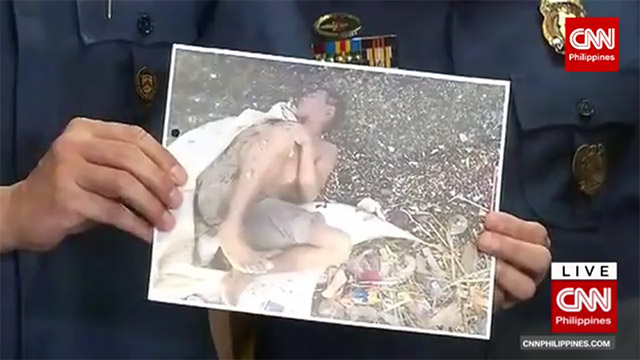
The alleged vigilantes who spoke to Rappler said Charlie was notorious in Village 105. They said he was a housebreaker, a thief, a young punk who did what he liked and felt up women when he could. “We caught him again and again, even before I was CSG,” said Simon. He added Charlie had been warned many times.
“That kid was trouble,” said Angel. “Neighbors complained. He was stealing, snatching in the highway.”
But Charlie wasn’t on the list of people the CSG was targeting to kill. “That might have been personal.”
“Personal” meant Charlie had never been part of the police kill list allegedly disseminated by Commander Maning. (Commander Maning denied any involvement in summary executions.)
Charlie’s murder, said sources, was a side job for CSG members – “Some neighbor was probably pissed because they lost a lot when Charlie stole from them,” Angel said. “So they paid, two, maybe three thousand.”
The murder was discussed in the days after his death, particularly since Charlie’s 14-year-old sister saw his abductors grab Charlie from the corner of Capulong near the CSG outpost at past 5 in the afternoon of January 1, 2017. Simon said Charlie was taken to the outpost. None of the killers hid their faces.
“I told them that was their mistake,” said Simon. “They should have known they would be recognized – why’d you grab him without wearing bonnets?”
The murder of Charlie Saladaga caused little consternation among the members of CSG Tondo Chapter 2.
“It was nothing,” said Angel. “The CSG were bragging. They were saying, ‘Look what happened. Which punk is next? Who else is left?’”
It is not the only time there have been documented accusations that the police have ordered the extrajudicial killing of drug suspects. Der Spiegel, Al Jazeera and the BBC each interviewed alleged assassins who claimed to take orders from unnamed policemen. In January 2017, Amnesty International released a report saying that some drug-related deaths were the result of police “hiring paid killers.”
According to Angel, the vigilantes of CSG Tondo Chapter 2 were not the first to act as the killing arm of President Rodrigo Duterte’s war on drugs. “There are other organizations,” said Angel. “Tondo is just one of them…Tondo was late killing people. Quezon City was first.”
Angel does not regret the killings, only the fact that sometimes, the wrong people like Charlie got killed. He said the CSG collapsed because the group failed to vet its own assassins.
Commander Maning, said Angel, was making money as criminals infiltrated the chapter. Guns for hire, dealers, drug addicts – “They kept recruiting just about anyone” – were invited into the brotherhood in its last months before the PNP raided the outpost.
“They got to be legends,” Angel said of the more notorious members of the CSG. “That’s what happened. They got to be famous where we lived, but the truth was that nothing happened, it was all about money. So the police would maybe give you money, but the real goal, we never succeeded.”
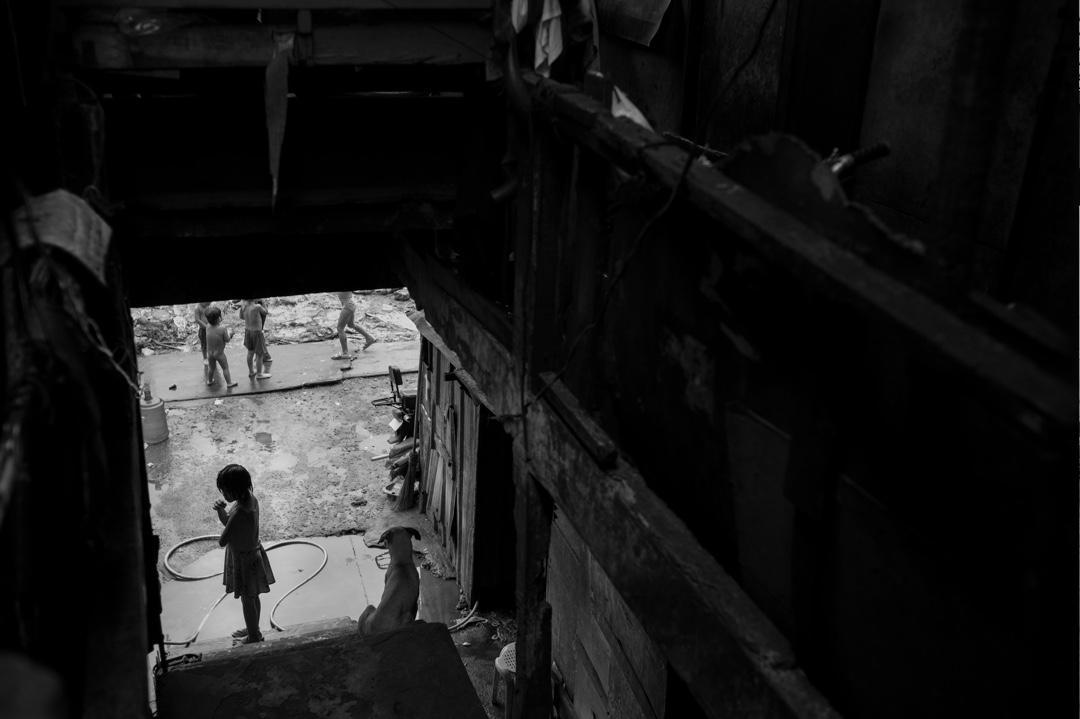
In the course of investigating this story, Rappler interviewed four self-confessed killers, two of them alleged members of CSG Tondo Chapter 2, two others reformed criminals who once knifed rivals and fleeced jeepney passengers for a week’s worth of drug money.
The men spoke of the rising cost of living and the struggle to send children to school. They talked of going to Church and courting girlfriends and the danger of illegal drugs. All of them spoke of murder with casual dismissiveness, as many others did in a village where seven-year-olds race to see fresh corpses.
“The cops killed my brother two years ago,” said one of the killers. “He was a dealer, so I guess he deserved it.”
Simon said the murder of Charlie Saladaga was a mistake.
“They should have surrendered him first,” he said, “because even if you say he’s a troublemaker, he didn’t have a fighting chance. It’s the drug lords we should have been killing. Those feel good to kill. The addicts, it feels good to kill them too. But the ones just taking drugs, they’re just victims. Unless of course we catch you in the act taking drugs – that makes you a target.”
In Village 105, talk of murder revolved mostly around whether the dead deserved it. Sitoy died because he was an addict and a hitman. Toyo died because he was a drug dealer. Sixteen-year-old Charlie Saladaga, whose death became national news and disbanded CSG Tondo Chapter 2, died “because he was a troublemaker.”
He was warned, said the vigilantes. He was trouble, said the village chief. There were people who were happy when he was killed, said one clerk at the village hall. Even Charlie’s mother tearfully told reporters that her son was no thief, as if lifting some neighbor’s television mattered after a bullet smashed into the cheek of a 16-year-old boy.
Chairperson Leny Reyes said the CSG Tondo Chapter 2 no longer exists. She refused to categorically say if accusations of murder had basis, but was quick to assign responsibility to the police.
“In the first place, [the CSG outpost] is just beside the police precinct,” she said. “If the cock crows, it’s the cops who’ll hear the crowing long before we do.” – Rappler.com
To be concluded: PART 7 | ‘It’s War’
PART 1 | ‘Some People Need Killing’
PART 2 | ‘The Cops Were Showing Off’
PART 3 | ‘Get It From The Chief’
PART 4 | ‘What Did The CSG Do Wrong?’
PART 5 | ‘I Finish The Job’
Editor’s Note: All quotes in Filipino have been translated into English. Rappler filed two Freedom of Information requests with the Manila Police District for case folders pertaining to investigations on murders allegedly committed by CSG Tondo Chapter 2. There has been no response. Rappler also requested an interview with former Manila Police District Director Joel Coronel. There has been no response as of publication.
On October 8, four days after the publication of this series’ first story, Philippine National Police Chief Oscar Albayalde dared any witnesses of vigilante killings to file affidavits and testify about police involvement. “We’ll be very much willing to investigate that,” he said at a press briefing in Camp Crame. The police chief earlier denied Rappler’s request for an interview.
Add a comment
How does this make you feel?
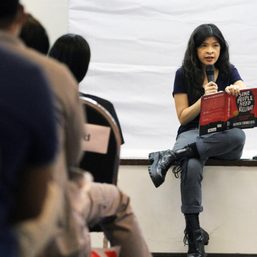

![[OPINION] ‘Some people need killing’](https://www.rappler.com/tachyon/2024/04/tl-some-people-need-killing-04172024.jpg?resize=257%2C257&crop_strategy=attention)






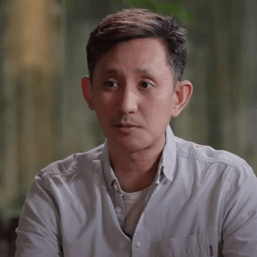
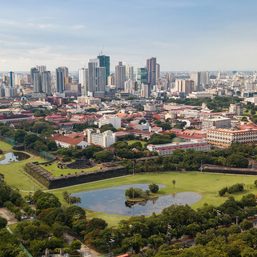
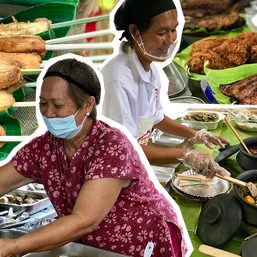
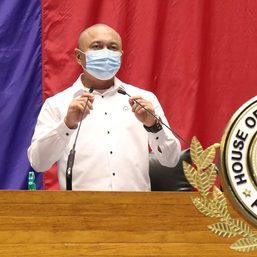


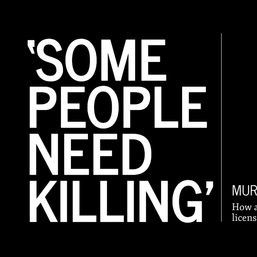
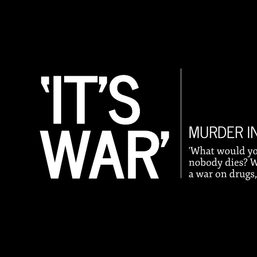
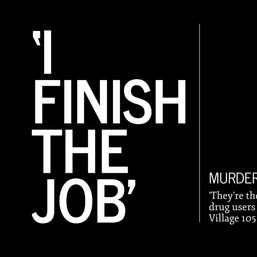
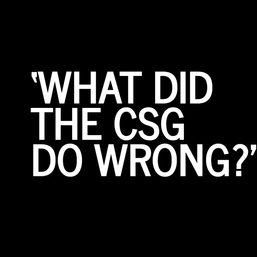
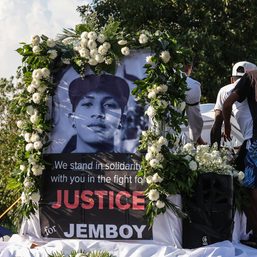
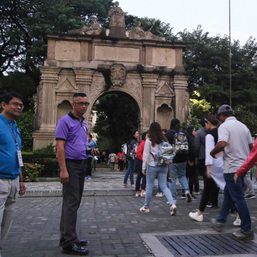
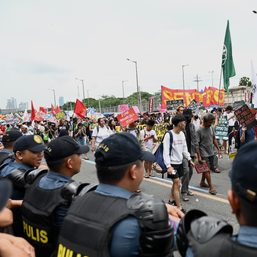
![[WATCH] Killings continue in Camanava: 20-year-old slain in Malabon](https://www.rappler.com/tachyon/2023/09/tcard-2.png?resize=257%2C257&crop_strategy=attention)

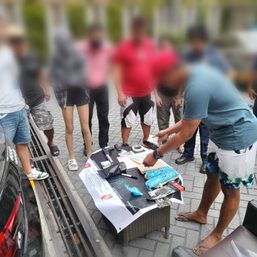


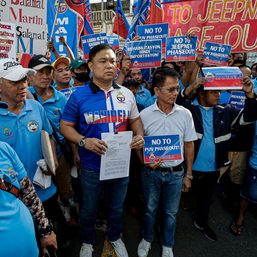
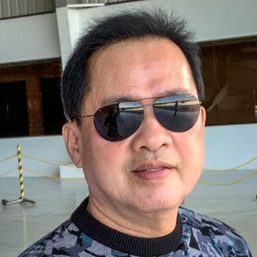
![[The Slingshot] Alden Delvo’s birthday](https://www.rappler.com/tachyon/2024/04/tl-alden-delvo-birthday.jpg?resize=257%2C257&crop=263px%2C0px%2C720px%2C720px)
![[EDITORIAL] Ang low-intensity warfare ni Marcos kung saan attack dog na ang First Lady](https://www.rappler.com/tachyon/2024/04/animated-liza-marcos-sara-duterte-feud-carousel.jpg?resize=257%2C257&crop=294px%2C0px%2C720px%2C720px)
![[Newsstand] Duterte vs Marcos: A rift impossible to bridge, a wound impossible to heal](https://www.rappler.com/tachyon/2024/04/duterte-marcos-rift-apr-20-2024.jpg?resize=257%2C257&crop=278px%2C0px%2C720px%2C720px)


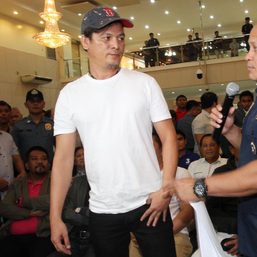
There are no comments yet. Add your comment to start the conversation.